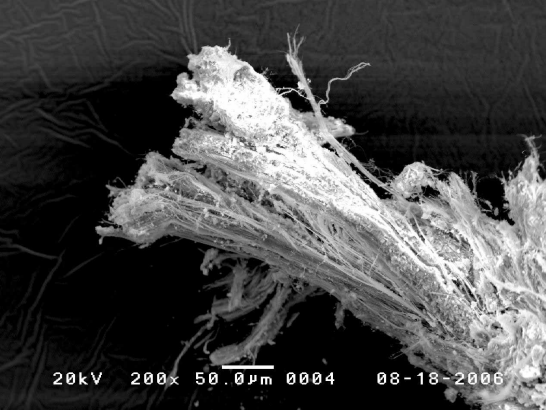Installation of asbestos containing materials (ACMs) has been banned in many countries for some time now. A lot of buildings still have ACMs, the fibres of which can get stirred up when work such as renovations or demolition are being performed. In order to help protect the people performing such work, scientists at the University of Hertfordshire have developed what they say is the world's first portable, real-time detector of airborne asbestos.
Currently, in order to test for airborne asbestos, there are two main choices.
Most often, a filter is used to collect fibres of various types that are present in the building's air. Those fibers are subsequently taken to a lab to be counted and X-rayed, to determine if any of them are asbestos. There are also portable real-time fibre detectors that can be used on-site, although they're unable to differentiate between asbestos and other, less harmful fibrous materials.
Prototypes are now being tested in a number of locations where asbestos-removal operations are taking place. It is hoped that the first production models may be available for use by tradespeople within 12 to 18 months. Prices are expected to initially be in the US$700 to $800 range, although those numbers may drop as production is increased.
Click for the news article, Portable device detects potentially-lethal asbestos fibers in real time
For the full story, Portable device detects potentially-lethal asbestos fibers in real time
Click for more information about the product

